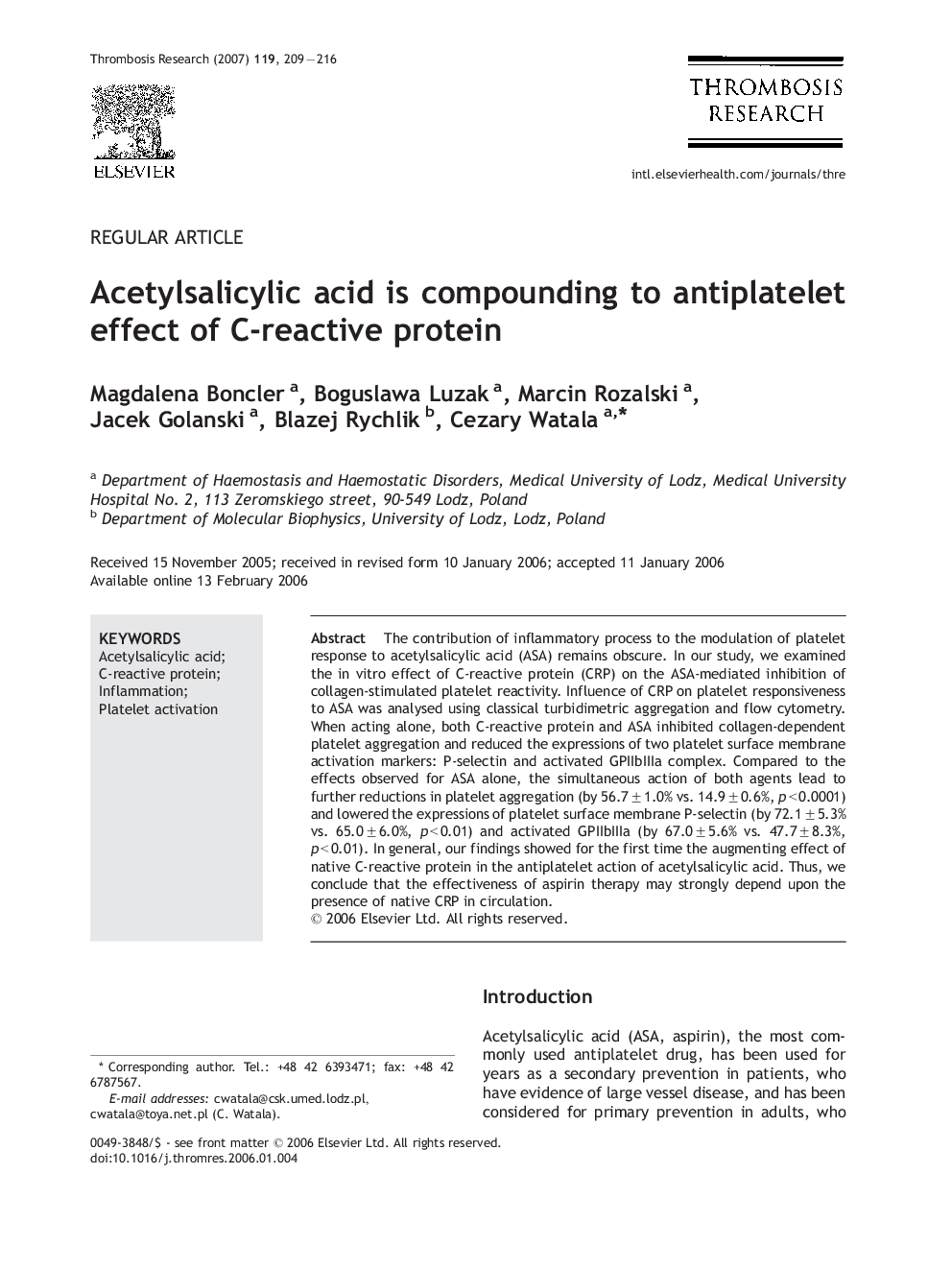| Article ID | Journal | Published Year | Pages | File Type |
|---|---|---|---|---|
| 3030235 | Thrombosis Research | 2007 | 8 Pages |
Abstract
The contribution of inflammatory process to the modulation of platelet response to acetylsalicylic acid (ASA) remains obscure. In our study, we examined the in vitro effect of C-reactive protein (CRP) on the ASA-mediated inhibition of collagen-stimulated platelet reactivity. Influence of CRP on platelet responsiveness to ASA was analysed using classical turbidimetric aggregation and flow cytometry. When acting alone, both C-reactive protein and ASA inhibited collagen-dependent platelet aggregation and reduced the expressions of two platelet surface membrane activation markers: P-selectin and activated GPIIbIIIa complex. Compared to the effects observed for ASA alone, the simultaneous action of both agents lead to further reductions in platelet aggregation (by 56.7 ± 1.0% vs. 14.9 ± 0.6%, p < 0.0001) and lowered the expressions of platelet surface membrane P-selectin (by 72.1 ± 5.3% vs. 65.0 ± 6.0%, p < 0.01) and activated GPIIbIIIa (by 67.0 ± 5.6% vs. 47.7 ± 8.3%, p < 0.01). In general, our findings showed for the first time the augmenting effect of native C-reactive protein in the antiplatelet action of acetylsalicylic acid. Thus, we conclude that the effectiveness of aspirin therapy may strongly depend upon the presence of native CRP in circulation.
Related Topics
Health Sciences
Medicine and Dentistry
Cardiology and Cardiovascular Medicine
Authors
Magdalena Boncler, Boguslawa Luzak, Marcin Rozalski, Jacek Golanski, Blazej Rychlik, Cezary Watala,
